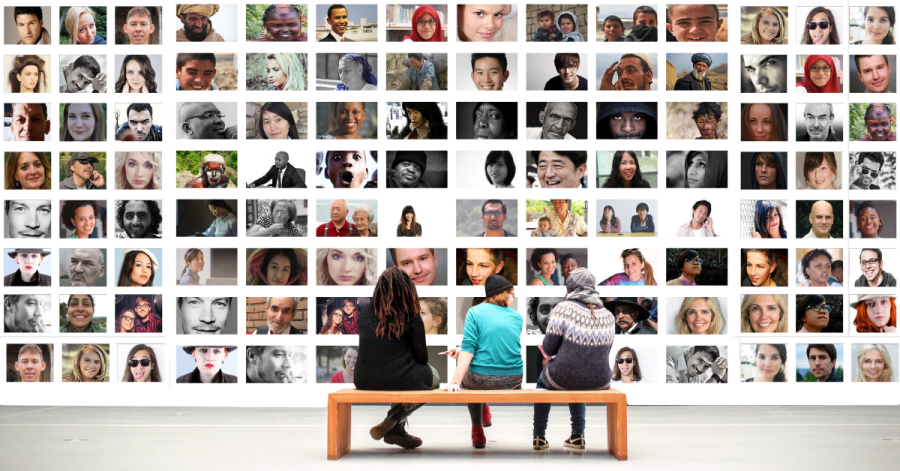The 12th Global Accessibility Awareness Day (GAAD) was marked on Thursday, May 18, 2023. GAAD aims to get people talking, considering, and gaining knowledge about digital accessibility and inclusion and those experiencing different disabilities. When it comes to tech startups devoted to digitizing or making processes more efficient, what works better for the vast majority of users may not work for those who are excluded.
Why is digital accessibility important?
There are roughly one billion people with disabilities worldwide. When working on innovation, it’s tempting to focus solely on one perspective – the creator. Innovators and designers often develop and evaluate concepts based on their knowledge. But here’s what’s amiss: when we take our personal abilities as the foundation, we create solutions that suit some individuals with a baseline similar to ours but challenging for others.
Every user deserves an exceptional digital experience. A person with a disability must be able to enjoy websites, writing, and other digital products in the same way as people without disabilities can.
Digital accessibility and inclusion in tech startup products
Because they are widely considered open-minded and diversity-friendly, tech startups may be able to handle accessibility and inclusion challenges. Most countries’ startup ecosystems are still in their early years, giving a perfect chance to get things done properly. It offers a compelling opportunity to shape startups by prioritizing inclusion, accessibility, or the overall concept of diversity over business goals. On the other hand, as innovations are, in most cases, initiated by individuals, there’s quite a hazard that personal perspective, bias, or unawareness can make things a bit more complicated.
When most IT world-leading projects were being developed, the personal inclinations of the programmers involved tremendously influenced the formed large tech organizations. There are numerous stories of how Google, Facebook, Twitter, and many other well-known companies struggled with rooted non-inclusion or even discriminatory issues within their teams.
The IT sector was shaped by quite often socially maladjusted, highly competitive, or even antagonistic straight white males with a god complex. Clive Thompson’s insightful book “Coders: Who They Are, What They Think and How They Are Changing Our World” covers this issue in great detail and gives examples for those needing proof. In truth, the demographic structure and diversity of the IT business have not evolved much since the beginning. So when tech startups are concerned, founded and developed by a very narrow group of people, they reflect their values and beliefs.
Startups should not overlook digital accessibility and inclusion while growing an innovative ecosystem. Going deeply into various medical disorders is unnecessary, as there are too many to grasp to make it right. Instead, it’s far more fruitful to try to identify cognitive demands and establish whether the experiences created by the startup meet them.
To become globally adaptable, an invention must build experiences that adapt to each individual and context throughout the emotional and cognitive spectrum. So, while developing a new technological solution, it should be considered how adaptive and user-centric it is. As the users are diverse, the tech product should adjust, not the opposite. Integrating people with various cognitive abilities and backgrounds in the design process increases the likelihood of bias-free inclusion.
Ways to increase the accessibility of startup innovations
According to Microsoft’s inclusive design principles, startups may take at least a few steps to make their innovations truly adaptable to the context of their users.
Recognize exclusion
Recognizing exclusion and understanding its causes is the fundamental concept of inclusive design. When we approach problem-solving with our own prejudices, we fail to recognize the various needs of individuals.
To fix it, we need to expand our understanding of disability beyond its conventional categories. Disabilities might include situational limitations, mobility limitations, and participation restrictions. Startups may develop ideas for inclusive designs by understanding where exclusion appears in the interaction between society and individuals.
Learn from diversity
Humans are capable of adjusting to diversity, as the inclusive design rules say. To really embrace inclusive design, people must be placed at the core of the design process, and innovators need to include various viewpoints from the beginning. Understanding how people adjust to different situations provides valuable insights that may contribute to meaningful, innovative solutions. Empathy is essential in this process because, with it, startup creators seek to comprehend people’s experiences from their own perspectives, seeing both barriers and common motives.
Solve for one, extend to many
The approach of creating universal human experiences underlines the imperative of inventing for one and extending to many. While each individual has different strengths and limits, certain fundamental qualities are universally relevant. We can build designs that assist a broad spectrum of people by concentrating on what is commonly important. Designing with constraints in mind may frequently result in inventive solutions that meet the requirements of those with permanent disabilities while also benefiting others with temporary or contextual impairments.
Startup entrepreneurs should embrace the concept that cognitive diversity includes everyone, from people with diagnosed medical issues to those in temporary conditions. Adopting inclusive design is an ethical necessity and a driver for creativity, allowing us to use the potential of varied viewpoints fully.
Also, startups must promote a more inclusive society, improve user experiences, and guarantee that no one falls behind in the digital era. If neglected, problems will occur and must be handled in the future, as many IT companies have experienced.








